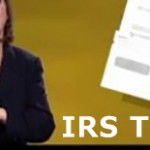The IRS recently announced the Third Wave or Round of Voluntary Disclosure, the so-called Tax Amnesty, regarding Foreign Unreported Income. I have written about this announcement, as well as asking the question if the Third Wave or Round of Voluntary Disclosure will be “fair.” This topic of Voluntary Disclosure, is also covered on my website in a few places, for instance, in the discussion “Am I Going To Jail?” and also on the page “Tax Fraud and Tax Crimes.” This article, and the series which follows, will explore the options available to a taxpayer when confronted with the choice of participating in the new Voluntary Disclosure Program regarding “offshore” income.
Note that the below also applies, somewhat, to the Voluntary Disclosure Program regarding “domestic” unreported income. However, there are separate rules of engagement, so-to-speak, and they will be addressed in another article.
For now, the focus is on the unreported foreign income and what to do about it.
There are basically three options:
(1). Do nothing;
(2). Comply “somewhat” with the Voluntary Disclosure Program; and,
(3). Comply completely with the Voluntary Disclosure Program.
The first option, “doing nothing” is the subject of this article.
Doing Nothing — I’m a Gambling Person By Nature
The first option, simply not participating in the Voluntary Disclosure Program, involves a sense of risk. I frequently refer to it as “the Audit Lottery.” It could also be equated, I suppose, to those folks who think, “this could not happen to me” (meaning getting an audit or worse, being the target of a criminal investigation).
The IRS does not want people to “do nothing,” which is pretty obvious, but the reasons behind same may not be as apparent to you.
Clients Who Want to Do the Right Thing But are Paralyzed
For many years, I’ve represented many clients who wanted to do the right thing by filing their tax returns and paying their taxes, but for a variety of reasons, were unable to do so. Some had assumed their “withholding” would be sufficient to take care of their tax liability; some had life crises or events which took a priority over taxes (such as death of a loved one, drug dependency, loss of employment, etc.); and others simply did not prioritize their tax responsibilities. All of these folks wanted to do the right thing but after so many years, they were essentially “paralyzed” – i.e., frozen in fear of what the IRS might do to them, criminally or civilly.
The IRS has been acutely aware that most folks are fearful of them, and hence the perception that they could end losing everything they have or own, or being thrown in jail, is usually more than enough incentive to inspire folks to do the right thing and file and pay their taxes. At least that’s the way the IRS thinks people will behave.
But that has not always been the case. Indeed, as time goes on, most folks became more locked down in fear of what could be done to them. Yes they “feared the worst” but did not comply, always looking over their shoulder and dreading the day Uncle Sam might come calling. In short, they did nothing out of fear and paralysis.
Voluntary Disclosure – First Initiative 2009
The first OVCI Program was great, and touted by experts as being so. I agree — at no time in my law practice was there a better opportunity to “come clean” with the IRS and file only 6 years of tax returns (amended or original), pay a 20% penalty for each tax year, file the FBAR (which reports the foreign bank accounts where the person had more than $10,000 and had a financial interest in the accounts) , and pay a 20% penalty on the “highest aggregate balance” in the foreign bank accounts. The IRS would forgive and forget all other years.
Thus, for example, if there was a foreign Swiss Bank account which was established in 1980, the IRS would not require the taxpayer to file and pay taxes, interest and penalties on all years from 1980 forward — only the past 6 years.
The original OVCI Program, like the second and third wave Programs are stated to be “compliance” programs. That term is significant because it means that the IRS is primarily interested in getting folks to report and file regarding foreign income in the future. The IRS knew that foreign bank accounts were not being reported on the FBARs (most if not all folks did not file any FBARs), and the IRS wanted a way to make sure folks would stay in compliance in the future.
Audit Risk in the Future?
So if you go through the Program, some of my clients would invariably ask that question – i.e., am I at risk of an audit in the future? In my view, the answer is “probably not” because a taxpayer would be a complete fool to not report foreign income in the future knowing that the IRS is likely to monitor their tax returns for having gone through the OVCI Program. In fact, to date, not one of my clients has been “audited” by the IRS since the first OVCI Program.
So What Pushed the Clients to “Go For It” – i.e., Participate in the 2009 OVCI Program?
Several reasons. Again, many wanted to do the right thing. Second, the IRS (actually the Department of Justice) had successfully sued the Swiss Bank UBS in the Middle District of Florida asking for the names of the approximately 52,000 bank account holders (i.e., U.S. citizens who had a foreign bank account at UBS). People were afraid that UBS would turn over their names to the IRS and the Department of Justice. People saw that UBS had entered into a deferred prosecution agreement in which UBS paid the USA $780 million dollars and agreed to send a list of names of individuals who had foreign accounts at UBS, to the Department of Justice. The lawsuit did not make this happen — instead it came about as a result of the treaty between the USA and Switzerland.
There is much more to the story, but in brief, people were afraid “they’d be next” on a list of names that goes to the Department of Justice for prosecution of tax evasion, among other criminal crimes.
Option #1 – Do Nothing
There were several clients who stated that they would rather play the “audit lottery” than participate in the OVCI Program (for 2009 and the Second Program in 2011). Their feeling was they were losing, in large measure, their nest egg. Others simply felt they did not want to pay Uncle Sam anything for whatever reason.
During the first wave, the IRS was contacted by several foreign banks, some Swiss and otherwise, regarding participation in a similar program. The Swiss banks were not the only foreign banks where U.S. citizens hid money — other countries were involved as well.
Now, in the present time, it has been widely reported that several Swiss Banks, and Banks in other countries, are being targeted by the IRS and the Department of Justice, and are therefore going to report the names of their U.S. account holders to the IRS. Thus, many taxpayers felt they needed to do the right thing, step up, and participate. And they did.
Audit Risk, or Worse?
That is the $64,000 question. No practitioner can look into a crystal ball and predict whether or not you are likely to be audited, or worse (i.e., being the target of a criminal investigation) if you do not participate. It depends on so many factors — the amount of tax due, the Banks involved, the years involved, when and how much information is transmitted to the IRS by the Banks, etc.
Moreover, this is, in effect, virgin territory, and no one knows exactly what methodology or criteria will be used to “audit” taxpayers in the future.
For example, if a taxpayer did not report foreign bank accounts over 10 years but the tax bill is rather small, $1,000 for each tax year, will the IRS pursue the matter at all? If so, will it be a civil case? A criminal case? Is there a threshold level of unreported income that the IRS will follow?
These are just a few of the unanswered questions. Each person’s tax case is different and no two cases are alike. Likewise each individual has to decide for the himself/herself, what is in their best interests. A consultation with an experienced criminal tax attorney is necessary. That’s why we’re here.
Related Posts
OFFICE HOURS:
Monday – Friday 9:00 am to 5:00 pm.
TELEPHONE HOURS:
We attempt to connect you with an Attorney up to 10 PM ~ 7 Days a Week!

"Ask An IRS Lawyer!"
Contact Page & Map to OfficePayment Plans Available






{ 0 comments… add one now }